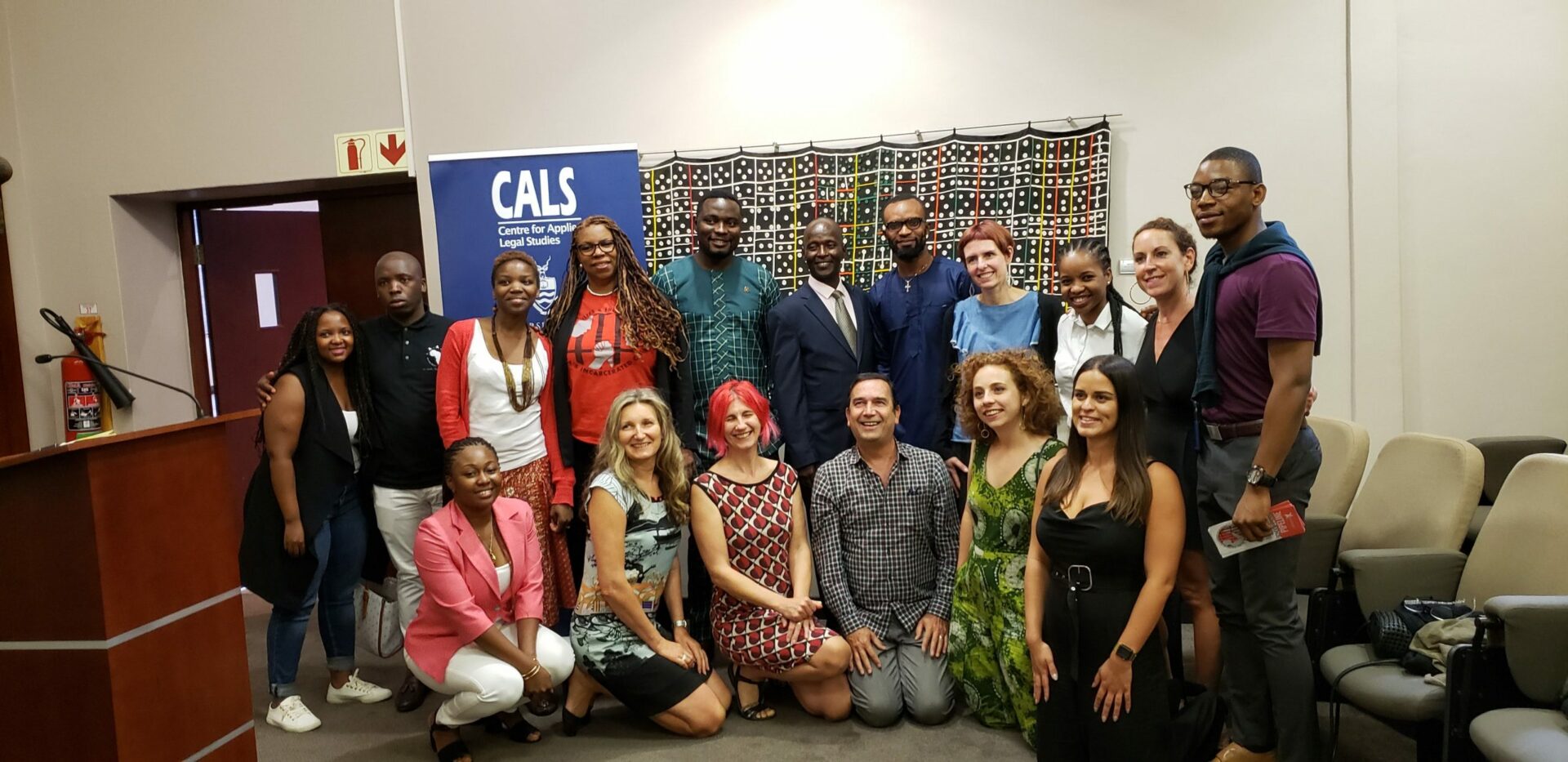Nelson Mandela Foundation’s headquarters in Johannesburg, South Africa, staged in the beginning of November the launching of a coalition of social organizations working for the reformation of the prison system in many parts of the planet. The mission of the Incarceration Nations Network (INN) is supporting and divulging innovations in the sector. As a member of the Network, Humanitas360 Institute participated in the opening event presenting details of its project forming cooperatives with inmates all around Brazil.
The president of Nelson Mandela Foundation, Sello Hatang, was the master of ceremony, accompanied by Baz Dreisinger, founder and executive director of the Incarceration Nations Network. Dreisinger is a professor at John Jay College of Criminal Justice of New York University, and creator of the “Prison-to-College Pipeline” project, which brings college-level education to inmates in the USA. The vice president of Humanitas360, Ricardo Anderáos, presented the project “Entrepreneurship Behind and Beyond Bars”, detailing how the project’s prototype, developed in the state of Sao Paulo, went on to acquire its current extension, expanding to Maranhão and other parts of the country.
Other members of INN presented several innovative initiatives, such as Solomon Akmun, of POS Foundation, in Ghana, who fights the overcrowding in prisons promoting special courthouse sessions in order to speed up the trials of preventive detention cases. Morris Kaberia, who leads the African Prisons Project in Kenya and Uganda, showed how his organization provides legal education to inmates, including paralegal training, law degrees for those who have completed high school, and even post-graduate courses. Besides defending their own causes, those who have benefitted from the project work pro bono defending their cellmates.
Paul Bruns, of the South-African NGO Hlumelisa, presented their work with gardening and plant seedling in prisons. Besides growing their own food, the inmates receive a certified 10-month long course on gardening, vegetable production, business management, and socio-emotional skills. The apprenticeship makes it possible for them to start a business or to be hired for agricultural work when they leave prison. In South Africa, agriculture is a market with workforce shortage. Sasha Gear of Just Detention International, which operates in the same country, talked about his work trying to put an end to sexual abuse in South African prisons, a task that borderlines healthcare and human rights.
Gina Womack, of the North-American NGO Families and Friends of Louisiana’s Incarcerated Children, presented her fight against the mass incarceration of children in this state. According to Louisiana’s laws, child offenders who are 10-years-old or older may go to jail. Her biggest victory is the dismantling of Tallulah Correctional Center, a private prison that held over 600 children and teenagers between the ages of 11 and 17. On the other hand, Ruud Jacobs, of the Dutch Small Scale Facility Amsterdam West, presented a work with teenager offenders that completely opposes the traditional model. The teenagers live in a shared home in a residential neighborhood that they may leave to study and to work, but to which they return at night and where they sleep in their individual bedrooms. They may be visited by their families and friends who support their socialization, and the model is being adopted as public policy by the current government.
Jana Smiggels Kavková, of the Czech organization Rubikon, showed their 5-year experience creating and managing a job agency for former inmates. The work begins while still in prison, with counseling, education, and preparation for life outside prison. After getting out, the former convicts receive individual counseling and participate in group activities, allowing them a realistic view of their job possibilities, a curriculum, and means to introduce themselves to potential employers, while talking about their criminal past. The organization also provides courses on recycling, improvement, and requalification for all the participants. On the other end, Rubikon develops a network of employers willing to offer people with former criminal records a job opportunity.
(Tradução: Pedro Brener)





